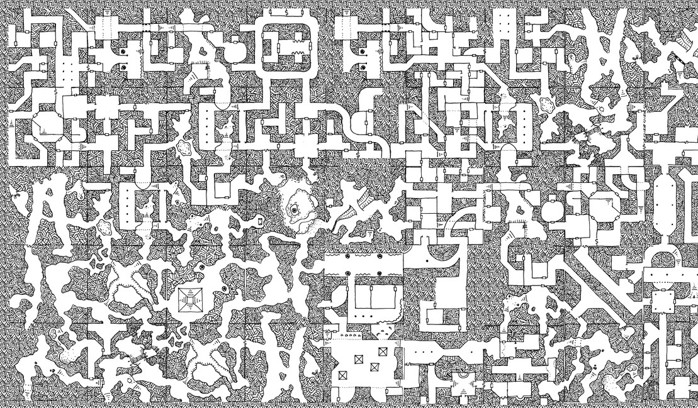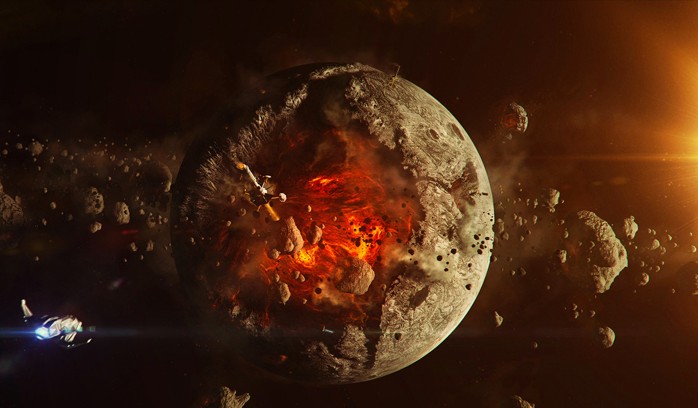Tag Procedural Content Generation
Overview of Three Techniques for Procedural Storytelling

Inspired by a recent paper I read this week, I decided to explain the three major “classic solutions” to the generative storytelling problem: Simulation, Planning, and Context-Free Grammars. Let’s what they are and what to choose.
Procedural Calendar Generation & Lunar Phases

Here we are again! This is Part 3 of a small series on how to randomly generate a physically accurate calendar starting from planet’s orbital parameters. You can find the general motivation here, part one here and part two here.
Said that, here we go with the next part: lunar phases.
Why lunar phases
Lunar phases are incredibly important in a calendar. So important, that many of the early humanity calendars are, in fact, lunar calendars or lunisolar calendars. Of course, this is true if and only if the planet is lucky enough to have a big moon like us.
Seasons Generation from Orbital Parameters

Welcome back to part 3 of the Procedural Calendar Generation series. In the first part we looked on how to compute celestial body position in a simple two-body system. The second part, instead is crash course on ellipse geometry.
In this part, instead, we will tackle a fascinating consequence of the cosmic dance of our planet around its sun: seasons. Seasons are a strange beast because their behavior depends on a huge amount of factors. We are used to our four seasons with mild springs and autumns, hot summers and cold winters. But these four season are just the consequence of our planet ecosystem, atmosphere, the peculiar axial tilt, if the orbit is particularly eccentric, distance from the sun in different period of the year can be a strong modifier too! In multi-star system, we can have more than 4 seasons, in planets with strange mechanics we can not have seasons at all (or better, the “season” depends on where are you on the planet).
Minimized Cave Generation with Cellular Automata

Yesterday I wrote a cellular automaton based procedural caves generator algorithm that fits in a business card. The algorithm itself is not new. I already did it in C++, Rust, Javascript and many more languages. It is my personal approach to “Hello World”: when I want to try a new language, write a PCG algorithm in it.
Randomness in PCG is about the result, not the parameters

I feel the urge of stating the obvious: randomness in Procedural Generation refers to the perceived randomness of the outcome; not the randomness of the input parameters.
In some sense this is “obvious” but, at the same time, is one of the most common mistake I see when developers tackle procedural content generation in their games. It is an understandable mistake, though. There are two assumptions we subconsciously make when we approach randomness: 1) we think that uniformly random parameters produce uniformly random outputs (that’s blatantly false), and 2) we think that uniformly random outputs yield to uniformly random perception in the human (even more false).
Random calendar generation from planet orbital parameters

In this article I want to show you a small proof of concept where we generate from scratch an alien calendar. The difference from other random calendar generators that just put random days and random month is that, in this tool, we can specify as input the orbital parameters of the planet and satellite and generate a calendar that makes sense. How could be the calendar for that planet orbiting a super-massive star? How could be the calendar for Mars or Venus? Every time I try to sketch a Sci-Fi world, I want to try thinking to a calendar that make sense for that particular planet. Because the calculations are long and boring, I built for myself this little tool. However, before going to the tool, I want to provide a small introduction to the problem.
PCG without a Computer: Combinatorial Literature
For us computer scientists and game developers, Procedural Content Generation is directly connected with computers and algorithms. It seems such a modern thing!
In reality, the exploration of the “combinatorial nature of art and human thoughts” is a much older concept. Probably, the most interesting and early writing on “PCG” is the doctoral dissertation of Gottfried Leibniz, De Arte Combinatoria (On the Combinatorial Art) (1666) in which he exposed the main idea that “all truth are nothing but combinations of a relatively small number of simple concepts.”
Announcement: Procjam's Seed #1

This is just a small announcement. Some days ago the first issue of Seed, the official ProcJam magazine, has been released. If you are interested in procedural generation you really should give it a shot. It is colorful 106 pages long magazine, full of experiences, ideas and interesting contents on PCG.
Moreover, there is also an article of mine on the Ouvroir de littérature potentielle (Oulipo), a mid ‘900 literary movement that it is really connected with the PCG. If you want to read about people developing PCG stories in the pre-information era, take a look.
Procedural Generation in the Post No Man's Sky Era

I think the time is ready to talk about Procedural Contents Generation (PCG) in the post No Man’s Sky era. I’m talking about “era” for a good reason: No Man’s Sky huge failure will definitely mark an era in the history of PCG, and not for a good reason. Players’ perception on PCG has been severely hurt by how badly NMS delivered its contents. Probably, this will be the end of PCG as a marketing buzz-word.
On the procedural generation of a proto-language

As you probably know, last week I was at the DiGRA-FDG conference in Dundee, Scotland. The conference ended last week, but I have the urge to add something to a really interesting presentation I’ve attended during the first day at the workshop on Procedural Contents Generation.
Before FDG, I was reading a small book on how the Chinese language has evolved during the centuries. It is extremely interesting. Especially if we look at the clear and wonderful evolution from pictures on paleolithic wood artifacts to the modern Mandarin Language. This triggered in me the idea to explore the literature on teleological algorithms for the procedural generation of languages (if you don’t know, the teleological algorithms in PCG are the ones that try to generate a “thing” by simulating the physical and evolutionary processes through which the “thing” is generated in the Real World™).
